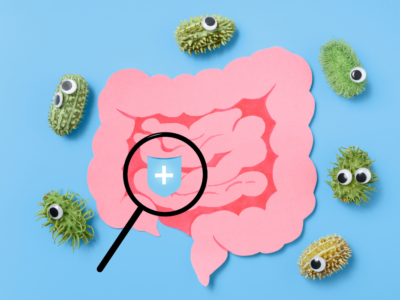For those of us who can tend to struggle with our milk supply or maybe even have a fear of not producing enough milk to nourish our baby there are foods we can put into our bodies to help give our milk supply a boost. These foods are called galactogogues, and they can stimulate the milk supply. The general rule of thumb for breastfeeding is to follow the Chinese medicine principle of yin and yang. Yin is cooling and yang provides heat to the body.[1] As far breastfeeding is concerned seek out warming and comforting foods (yang) for your milk supply. Cooling foods (associated with yin), such as an apple or peppermint will cause your body to withhold milk instead of release it.[2] Here are some great warming foods to feed your milk supply:
1. Grains, Seeds and legumes
The most well-known food for helping increase the milk supply is oats. Breastfeeding mothers are known to down bowls of oatmeal or pop oatmeal cookies right and left. Oats are great, but other grains such as brown rice and barley do wonders for your milk supply. Eating quinoa with any meal will help boost your supply or a snack of hummus (made from chickpeas) is wonderfully nourishing and will add nutrition to your milk, while encouraging your body to produce it.
Why? These grains, seeds and legumes help the body relax, which produces oxytocin a key hormone in milk production. Brown rice in particular stimulates the brain to produce serotonin. Serotonin is a neurotransmitter that causes the body to produce prolactin, which is the key lactation hormone.
2. Coconut Oil
Breastmilk is a source of complete nutrition for baby, but only if they mother is eating a well-rounded, nutritious diet herself. Consuming enough healthy fats is key to maintaining a healthy milk supply. Coconut oil is such a perfect food to be eating while nursing. It’s chock full of lauric acid, which is a key ingredient in breastmilk. The consumption of healthy fat encourages your body to produce milk, not to mention the added lauric acid is antimicrobial and therefore helps protect your baby from getting sick. If a mother’s body if deprived of healthy fat her body will not want to produce milk. Give your body what it needs to be successful!
3. Fresh almond milk
Fresh almond milk is a great, delicious way to increase your milk supply. Almonds are high in linoleic acid and known to be the most lactogenic nut. Interestingly enough a study on breastmilk reveals that one of its main components is linoleic acid.[3] Giving your body a high dose of linoleic acid makes it easy for it to transfer into the breastmilk. It is also said that women who eat almonds have better tasting milk. Almonds also contain omega-3 fatty acids, which are essential to helping the body’s breastfeeding hormones to regulate.
To make fresh almond milk, soak 1 cup of raw organic almonds in filtered water and 1 tablespoon of sea salt for 12 hours. Drain and rinse the almonds. Put them in the blender with 2 cups of filtered water. Blend on high and then strain the mixture through a nut milk bag. Add a teaspoon of both honey and vanilla if desired. Drink throughout the day.
4. Vegetables
Dark leafy green vegetables (spinach and kale) and reddish vegetables (yams and carrots) can play a significant role in your body’s ability to produce milk. Dark leafy green vegetables contain phytoestrogens, which help your body produce prolactin that ever important hormone needed to produce milk.
Reddish vegetables contain beta-carotene and also supply the body with calcium and iron. Calcium is known to tie into a woman’s hormone production which can help balance the milk supply.
Hilary Jacobson, the author or Mother Food suggests that a lactating mother drink one glass of fresh vegetable juice two to three times a day!
5. Turkey
Many lactation consultants will often advise that a mother increase her protein consumption if she is struggling with her milk supply. But not all protein is created equal. The amino acids contained in protein are what can cause a supply increase. Tryptophan (found in turkey) is one amino acid that can greatly grow the breastmilk supply. Tryptophan causes the body to relax, which produces serotonin. Serotonin is a precursor to the production of prolactin.
[1] https://www.sacredlotus.com/go/foundations-chinese-medicine/get/yin-yang
[2] MOTHER FOOD by Hilary Jacobson
[3] https://www.ncbi.nlm.nih.gov/pmc/articles/PMC3697205/



